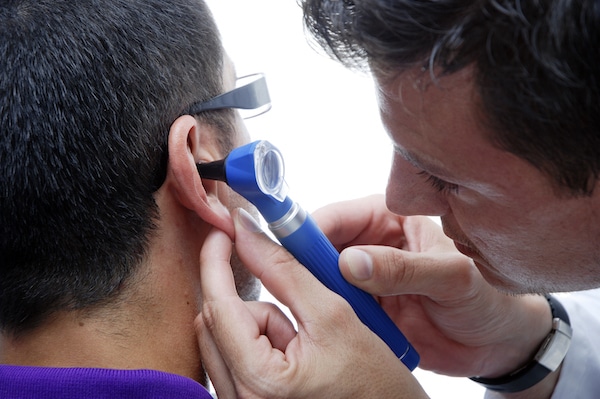If you give any thought to your ears in Tucson, you probably concern yourself matters such as hearing. Or piercings. Maybe finding a convenient place to stick a ballpoint pen. But your ears can actually provide you with a lot of information about your overall health, if you know what to look for.
What Your Ears Tell You
Ears aren’t just for listening – they can do a bit of talking, too. Not literally, of course, but your Tucson audiologist recommends paying close attention to their physical appearance and any problems you are having with them, both of which can be clues to bigger underlying problems. Be especially vigilant about the following:
- Creased earlobes. Wrinkles are common over certain areas of your body, but not generally your ears. A diagonal wrinkle or crease across the middle of your earlobe (known as “Frank’s sign”) may indicate coronary heart disease. The crease forms when tissue surrounding the blood vessels in both the ears and heart breaks down. Don’t panic at the first sign of a crease – it’s only one possible indicator of trouble – but definitely have your Tucson audiologist take a closer look.
- Hearing loss. Hearing loss is associated with a variety of physical, psychological and social health problems. Cognitive decline is especially prevalent; researchers at Johns Hopkins have found that people with moderate hearing loss are three times more likely to develop dementia compared to those with normal hearing. In order to reduce the brain’s workload and prevent or delay cognitive impairment, wear hearing aids.
- Single-sided deafness. Hearing loss that occurs in only one ear is usually caused by trauma, infection or fluid buildup in the inner ear. Another possible cause is a benign tumor called an acoustic neuroma. Though noncancerous and typically slow-growing, it can still cause trouble over time if it becomes big enough to press against the auditory nerve of the inner ear; this can cause single-sided deafness. Be on the alert for other symptoms such as imbalance, tinnitus and facial drooping or weakness.
- Tinnitus. This ringing in the ears is very common, affecting about one in four Tucson residents to some degree. Because it is a symptom and not a disease, it is almost always associated with another medical condition – some serious, others less so. Possible causes include high blood pressure, heart disease, hormonal changes, Meniere’s disease and tumor.
- Itchy ears. Itchy ears can be a sign of fungus or eczema. A fungus in the ears is often accompanied by a white, cheese-like discharge, while people with eczema might notice white flakes and a red ear canal. Itchy ears aren’t normal, so if symptoms persist for more than a couple of days, have your Tucson audiologist check you out.
- Earache. Most earaches are associated with ear infections, but these are rare in adults. An earache may instead be a form of “referred pain” caused by a toothache, TMJ disorder, cellulitis from an infection, tumor or sore throat. If you experience frequent earaches, make an appointment with a Tucson hearing specialist.
- Wet, sticky earwax. Earwax is perfectly normal and is crucial in promoting good ear health by preventing bacteria and other particles from entering the ear canals, but pay attention to the consistency. Earwax that is wet and sticky consistency may be a sign of a mutation on the ABCC11 gene, which increases the risk of developing breast cancer. Individuals at high risk (such as those with a family history of the disease) should alert their physician to any unusual earwax.
- Red ears. Red ears can indicate embarrassment, but if you haven’t been caught in a compromising position or done something foolish, redness may be a sign of a more complex medical issue such as hormonal change, frequently associated with menopause. Another possible cause is Red Ear Syndrome, a burning sensation in the ears that can cause migraines and cluster headaches.
- Numbness. Ear numbness on its own isn’t usually a big deal, but when other symptoms such as arm weakness, facial drooping or speaking difficulty occur in conjunction with it, you may be suffering from a stroke. When accompanied by vertigo, hearing loss or tinnitus, you might have an inner ear disorder called Meniere’s disease. When the numbness extends to other extremities, you could be suffering from diabetic peripheral neuropathy.
- Structural abnormalities and skin tags. Ears that are unusually shaped and those that contain skin tags (small, fleshy growths) may indicate the presence of kidney disease.
If your ears are displaying any of these signs, it’s a good idea to make an appointment with a Tucson audiologist. They’ll give you a thorough evaluation and recommend treatment if there is an underlying medical concern.
